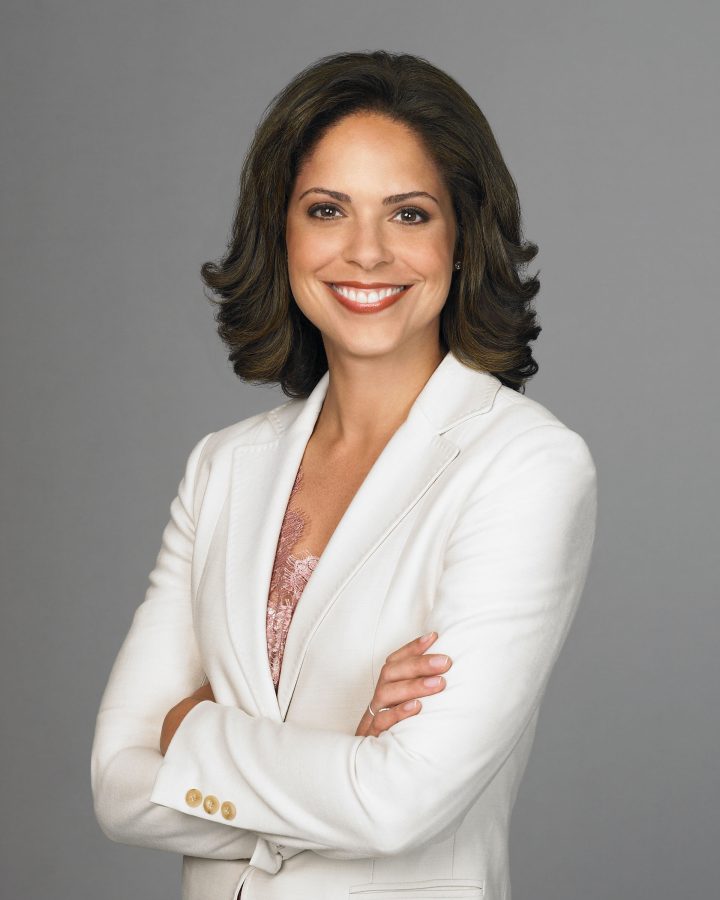I knew this girl when I was growing up. Her surname was White and she was black. The natural order of ironic names led to name calling. That is how kids deal with race — unless you beat them to it. She grew up in Mattapan and liked stereotypical white music, and had white friends. She called herself an Oreo and her nickname, Whitey, was her idea. She wore these names like an armor so they could not be used to hurt her, and it is a story that many do not talk about. This lack of conversation is exactly what CNN reporter Soledad O’Brien seeks to address with her documentary Black in America.
On February 4, O’Brien will visit University of Massachusetts Boston to speak as a part of her nationwide tour, “Black in America 2015.” The documentary itself is about racial advocacy, and this is the opportunity to be a part of the movement. The timing seems to be perfect. America is in need of healing, awareness, and education in the wake of riots, protests, and shootings related to race that have become a remained occurrence.
O’Brien is half black herself, but the film reveals that despite the lack of conversation, she is certainly not alone. This documentary started as a commemoration of the 40th anniversary of Martin Luther King Jr.’s assassination. Black in America—which premiered in 2008—is part of a series of documentaries under CNN’s ”In America” project. At a panel in response to the release of Black in America, O’Brien lays out the purpose of the documentary from her perspective.
“It’s about conversation, so if we are able to get people to stand up and yell on one side or the other […] I think we’ve been really successful.”
O’Brien is no stranger to success. She is the chairman of Starfish Media Group, but ultimately left her anchor position for CNN’s morning news program, “Starting Point”, to focus on this project. She also works as an executive producer for the National Geography Bee. Additionally, she received honors from the Harvard Graduate School of Education as she was recently named a Distinguished Visiting Fellow. She is also a chairperson for the Board of The After School Corp, and the list goes on.
O’Brien is an overtly active member of society, but one of her greatest contributions has been her work on Black in America. Due to its success, O’Brien would go on to make a Black in America: Black and Blue, which would go on to cover the relationship between race and the police.
The original documentary covers personal stories, featuring black poets, families, and those struggling with their own skin color. The opening lines clearly lay out the tone laced throughout the film, “Why is your hair so good? Why is your skin so light? Are you mixed?” This young girl is the voice of many, being forced to justify her color and her culture. This feature follows two young female poets, Nia Jones and Becca Kaleel, who struggle with their identity because they are half black with light skin, feeling as if they belong to neither fraction. Nia’s revealing line of poetry illustrates the conflict of identity, writing, “I won’t be a white girl anymore, but I won’t be a mixed girl either.”
Jones and Kaleel have a poetry coach, Perry Divergilio, also known as Vision, who is also half black and half white and grew up with the dichotomy between two identities. He described this fission from both perspectives.
“To the white boys he wasn’t white enough. To his father’s black neighbors he wasn’t black enough.”
This harmful line of thinking starts at an early age. At one point, the movie focuses on a grade school classroom, discussing their own views on their skin color. This segment is perhaps the hardest to watch, but also the most revealing. At age six they already reject their own darker skin tones with one girl stating to her mother, “I think my skin is ugly.” Cases like this are why there are teachers who focus on teaching “colorism” at young ages. Even though the topics are mature, the most harmful messages have already permeated their youth. The early start on healing will equip kids with the tools they need to hold on to their race, color, culture, and their choice to self-identify.
Soledad O’Brien will be joined by special guests Julianne Malveaux, an economist, political commentator, and author; Benjamin Jealous, former president and CEO of the NAACP and current chairman of the Southern Elections Fund; and Aminah Pilgrim, assistant professor of Africana studies at UMass Boston.
The event will take place February 4 at 3 p.m. in the Campus Center Ballroom. All members of the campus community are welcomed.

